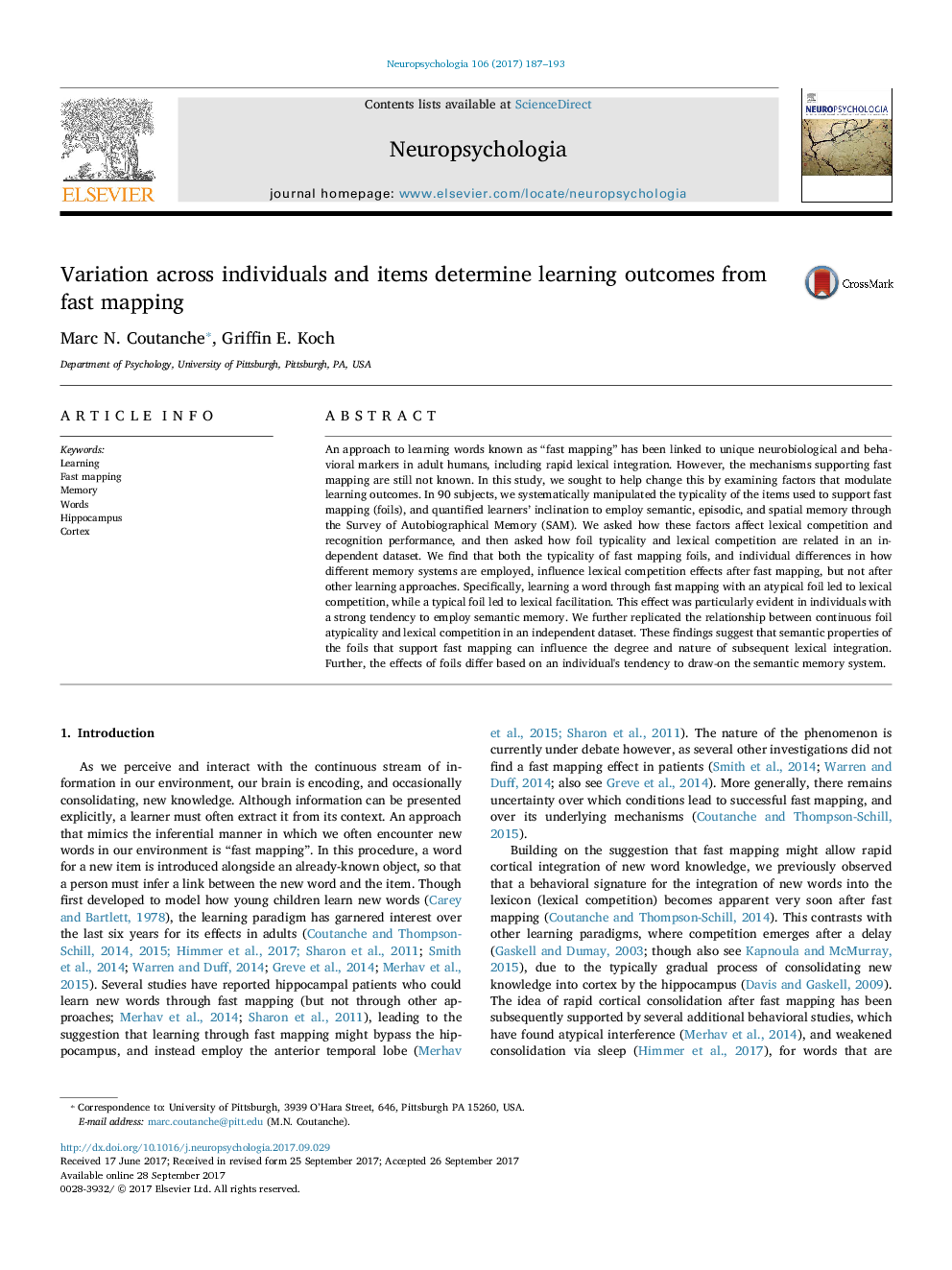ترجمه فارسی عنوان مقاله
تغییر در افراد و اقلام، نتایج یادگیری را از نقشه برداری سریع تعیین می کند
عنوان انگلیسی
Variation across individuals and items determine learning outcomes from fast mapping
| کد مقاله | سال انتشار | تعداد صفحات مقاله انگلیسی |
|---|---|---|
| 128751 | 2017 | 7 صفحه PDF |
منبع

Publisher : Elsevier - Science Direct (الزویر - ساینس دایرکت)
Journal : Neuropsychologia, Volume 106, November 2017, Pages 187-193
ترجمه کلمات کلیدی
یادگیری، نقشه برداری سریع، حافظه، واژه ها، هیپوکامپ، قشر
کلمات کلیدی انگلیسی
Learning; Fast mapping; Memory; Words; Hippocampus; Cortex;

